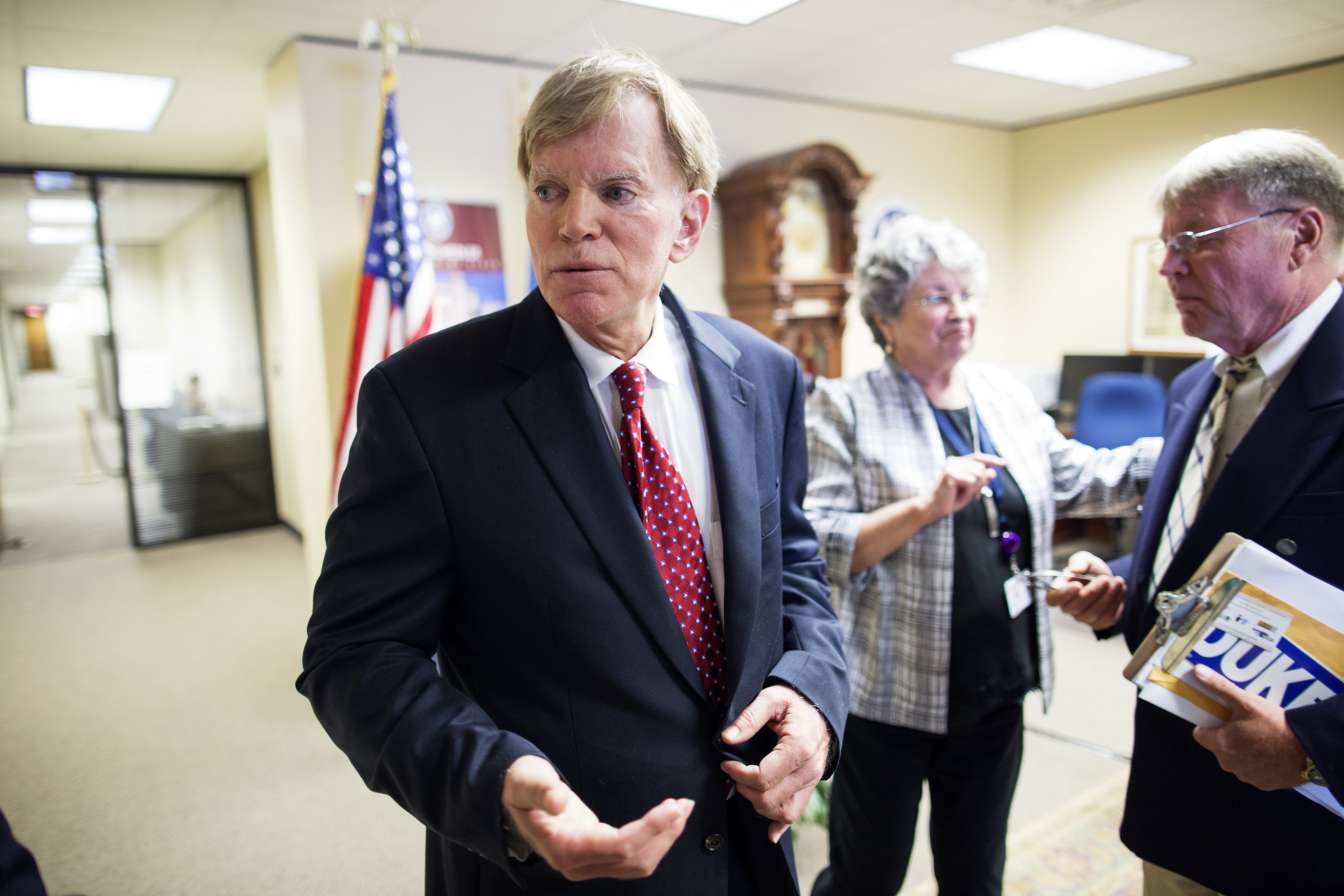
NPR’s news bosses had a tough call this morning when it had to decide whether to give some of its precious air time to a racist.
David Duke probably isn’t going to win a Senate seat in Louisiana. There are too many people running for the gig and the Republican Party has already said it won’t support him.
So what makes David Duke worthy of NPR airtime for a race among other candidates whom NPR probably won’t invite on Morning Edition?
The former head of the Ku Klux Klan loves Donald Trump and everything he stands for.
-
Audio not found
Duke, of course, has been around a long time and if Trump hadn’t been running for president, NPR likely wouldn’t have given him the time of day.
But Trump is running and won’t submit to questioning from people at NPR like Steve Inskeep, so — just as it interviewed Pat Buchanan a few months ago — NPR is forced to talk to the company Trump keeps, philosophy-wise.
In introducing the audio this morning, Inskeep, as skilled an interviewer as there is, defended the decision to give Duke a soapbox.
“Trump’s campaign has disavowed Duke’s support more than once,” he said. “Yet that has not stopped some white supremacists from attaching themselves to Trump. We listen to the former Klansman because he represents the way white supremacists do that.”
The New York Times did the same thing with its viral video this week (language warning).
“These are just nothing more than epithets and vicious attacks,” Duke said of the claim by some Republican leaders that Trump does not reflect the values of the party. “Donald Trump is not a racist. And the truth is, in this country, if you simply defend the heritage of European American people, then you’re automatically a racist. There’s massive racial discrimination against European Americans, and that’s the reality.”
“You know that white people in this country still have the overwhelming preponderance of wealth and power, right?” Inskeep said.
“Well they don’t really have the overwhelming—European American history—no, they don’t. I mean, Hollywood is not controlled by traditional European American heritage,” Duke responded.
Jews, in other words.
On NPR.
Inskeep didn’t mix mince words as he introduced another part of the interview. He said Duke was “unspooling old racist theories that he said were not racist.”
He made no secret that the point of the interview was to link Trump to racist theories, a task that Trump’s own words and actions have accomplished to some degree.
Duke didn’t say anything he hasn’t said before and his appearance on NPR raises an old debate: When should racism get a voice to expose it as racism and when should it be denied a microphone?
“This is the kind of story that I am sure your news division director, Michael Oreskes, is very proud to present on NPR so as to get all views represented,” one commenter on npr.org wrote. “Why he, the network, or Morning Edition deem it newsworthy is beyond me.”
“Obviously, Duke is a racist; however, I am glad NPR had him on,” countered another. “I think in the effort for stressing equality, the media and political powers to be are magnifying other cultures, while suppressing European culture and its achievements. The DNC convention made great efforts to have and promote everything but the European/white male. Simply put, all cultures have good things and bad. The native Americans were slaughtering each other long before the white man came. Africans to this date are slaughtering each other, especially in the 90s.”
If she’s looking for a topic to write about, NPR ombudsman Elizabeth Jensen now has one.
